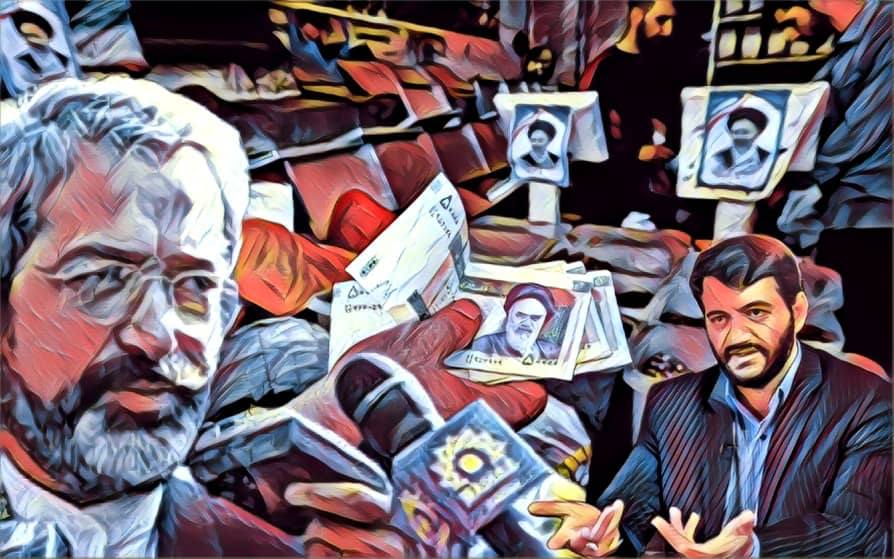From Nourbakhsh to Abdolmaleki: Iran on the Brink of Economic Collapse
From Nourbakhsh to Abdolmaleki: Iran on the Brink of Economic Collapse. According to Iran Gate, the Iranian government’s institution has experienced many ups and downs, but many believe that currently, the government is at the lowest point of performance and at the lowest quality level of management. At first glance, comparing managers like Ali Naghi Alikhani, Hassan Ebtahaj, Houshang Ansari, Mohammad Sattari Far, Seyyed Mohsen Nourbakhsh, Ali Tayebnia with Raisi’s economic team might seem laughable. However, the truth is that reaching figures like Abdolmaleki, Khandouzi, and Salehabadi not only marks a great tragedy but could also lead to a major disaster, bringing the country closer and closer to economic collapse.
Many believe that Ebrahim Raisi’s government, due to the incompetence of its managers, is rapidly driving the country towards economic collapse. Weak managers like Abdolmaleki, Fatemi Amin, and Khandouzi have reached a point where even economists who support the ruling faction have stopped defending Raisi’s economic team.
Iran Gate, in a three-part series, has explored the evolution and transformation of Raisi’s economic team and the theoretical orientations of the thirteenth government. In the first part, the theoretical genealogy of the government’s economic team has been examined and investigated.
Which Economists Were Lined Up?
When Ebrahim Raisi visited the Ministry of Interior to register for the presidential elections in the spring of 2021, prominent figures among moderate and classic conservatives were seen with him. Perhaps the most significant economic figure accompanying him was Farhad Rahbar, who appeared in all of Raisi’s election photos alongside Nikzad and Rostam Ghasemi.
Ebrahim Raisi’s statements in the election debates also strengthened the possibility that the leadership of the government’s economic team would be in the hands of individuals like Farhad Rahbar or Davood Danesh Jafari. Therefore, many economists supporting the government believed that Ebrahim Raisi’s economic tendencies would most likely align with the mainstream economy. However, as time went by, Ebrahim Raisi, to the astonishment of the public, unveiled his cabinet, and this unveiling showed no trace of prominent figures like Farhad Rahbar and his associates.
Of course, some of these conservative managers of the Islamic Republic, who also held various responsibilities during Ahmadinejad’s government, were present in the government. But over time, it became clear that the group with the upper hand in the government was certainly not related to experienced economists.
Figures like Rostam Ghasemi and Masoud Mir-Kazemi, who were close to the group of experienced conservative economic managers, were gradually sidelined. Unfortunately for Rostam Ghasemi, he passed away in 2022 before losing his position in the government, but many government officials and parliament members were seeking his dismissal.
In any case, it seems that the government’s economic team, despite their differences, has become ideologically unified. But which trend in the world of economic science does this ideological direction align with more closely?
Neither Left nor Right
The debate between Mousa Ghani Nejad and Masoud Derakhshan can serve as a good roadmap for better understanding the ideological direction of Ebrahim Raisi’s government’s economic managers. In this debate, which was repeatedly shared on social networks, Masoud Derakhshan’s theoretical weaknesses were highlighted multiple times. However, as the program’s host emphasized, Masoud Derakhshan was introduced as an Islamic economist, and he can be accepted in this categorization.
Ebrahim Raisi’s government’s approach to managing the country’s economy has a great resemblance to what is known as Islamic economics, represented by individuals like Masoud Derakhshan. In Raisi’s economic team, the influence of Islamic economists is clearly visible, and it can be said that all the current economic team managers belong to this trend.
This trend, which not only lacks formal recognition in academic circles but is also agreed upon by economists from both the right and left for its lack of structure, allows one to claim that Ebrahim Raisi’s government, in terms of managing the country’s economy, is not only unconventional but also academically suffers from theoretical poverty. This means that Ebrahim Raisi’s government neither focuses on liberal policies in the economic field nor leans towards leftist policies.
Although decisions have been made at times that have proximity to both the left and the right, ultimately, no specific conclusion about the government’s direction in managing the country’s economy can be reached unless all the managers of the thirteenth government’s economic team agree on the term Islamic economics, which is an imaginary and meaningless concept.
Economic Collapse is Near
English
View this article in English

